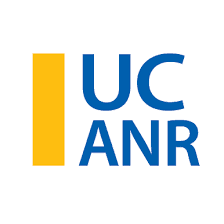Cooperative Extension Area IPM Advisor - Commensal Rodents and Urban Wildlife - Serving Santa Clara County and the San Francisco Bay Area (25-27)
Job Description
Cooperative Extension Area IPM Advisor - Commensal Rodents and Urban Wildlife - Serving Santa Clara County and the San Francisco Bay Area (25-27)
University of California Agriculture and Natural Resources
Application Window
Open date: September 4, 2025
Next review date: Sunday, Nov 9, 2025 at 11:59pm (Pacific Time)
Apply by this date to ensure full consideration by the committee.
Final date: Monday, Feb 9, 2026 at 11:59pm (Pacific Time)
Applications will continue to be accepted until this date, but those received after the review date will only be considered if the position has not yet been filled.
Position description
The University of California, Agriculture and Natural Resources (UC ANR) invites applications for a UC Cooperative Extension (UCCE) Integrated Pest Management Advisor: Commensal Rodents and Urban Wildlife, serving Santa Clara, Alameda, Contra Costa, and San Mateo/San Francisco Counties at the Assistant rank. The Advisor will develop an innovative multi-county applied research and extension education program that supports integrated management of commensal rodents and urban wildlife in the five-county area.
The Integrated Pest Management (IPM) Advisor will focus on research and education to effectively manage vertebrate pests in urban areas, with a special emphasis on commensal rodents such as rats and mice infesting areas in and around dwellings and other structures. Commensal rodents are considered "pests of significant public health importance" by the US EPA and are among the most important of all urban pests worldwide, with billions spent annually on damage to structures, infrastructure, and human health. Effective management of these pests protects both public health and the environment. The Area IPM Advisor will develop IPM strategies to manage these pests, working closely with public agencies, pest control operators, licensed pest management professionals, and other practitioners in the public health and pest control sectors.
UCCE Advisors are responsible for applied research and extension of knowledge. Research activities are applied, needs-based, and mission-oriented, focusing on addressing the challenges in our communities. Extension activities are the educational practices that Advisors use to share research results directly with clientele and communities to increase their knowledge and understanding of science-based research that supports and promotes the adoption of practices and technologies to solve problems. Extension methods may include individual consultations, presentations, organizing educational workshops and short courses, field demonstrations, and site visits. Information may also be disseminated via radio outreach, webinars, fact sheets, policy briefs, news blogs, and social media. Publications are expected in various formats, such as newsletters, articles for the popular press, curricula, conference proceedings, and peer-reviewed publications.
Successful research and extension programs result in new information that improves knowledge or understanding and adoption of new skills, practices, changed attitudes, policies, and improved environmental, health, economic, and/or social conditions. UCCE Advisors are evaluated through an academic advancement system based on four criteria: extending knowledge, applied research and creative activity, professional competence and activity, and university and public service.
Location Headquarters: The position will be headquartered at the University of California Cooperative Extension Office in Santa Clara County, located at 1553 Berger Drive, San Jose, California.
Position Details
Roof rats, Rattus rattus, have increased in range in recent years and are considered major pests in most of California's communities. Norway (or sewer) rats, Rattus norvegicus, are also very common, especially in inner cities with aging infrastructure and large communities of unhoused residents. Mice, including the house mouse, Mus musculus, and several native Peromyscus deer mice species (known to vector hantavirus), are also very common within California's dwellings and other structures. At the same time, formerly common tools for management have become more restricted. Urban uses of anticoagulant rodenticides have recently been restricted or removed (AB 1322, AB1788, AB2552) in California due to legitimate concerns about secondary poisoning of wildlife, disruptions to local food webs, and acute hazards to people and pets. There is a huge and growing need for the development of alternative strategies and evidence-based evaluation of best practices.
This advisor's research will focus on the development and evaluation of IPM programs to address high-priority vertebrate pests in and around structures, with emphasis on commensal rodents. Topics appropriate for research include:
- Alternatives to chemical tactics
- Best practices for existing chemical tactics
- Holistic IPM programs and advanced monitoring and trapping programs
- Evaluation and demonstration of new technologies, such as remote sensing and notification systems associated with physical traps
Success will be measured by increased use of IPM practices that improve the management of urban pests, address pests of public health significance, reduce unnecessary or unsafe pesticide use, and reduce pesticide exposure to natural ecosystems. Research results and knowledge are expected to be published in various UC ANR series and technical sheets, such as UC IPM's Pest Notes, trade journals, and peer-reviewed journals such as One Health, Pest Management Science, and Journal of Integrated Pest Management.
The Advisor will conduct extension activities, including coordinating with local public agencies, pest management professional groups, the UC IPM Program, and campus-based faculty and Cooperative Extension Specialists to develop, implement, and participate in train-the-trainer programs and hands-on workshops for urban pest management professionals. The Advisor will coordinate or participate in projects that demonstrate IPM practices to local audiences, either directly (for example, pest control operators) or indirectly (for example, through UC Master Gardeners).
Counties of Responsibility. This position has programmatic responsibilities in Santa Clara, Alameda, Contra Costa, and San Mateo/San Francisco Counties. (San Mateo and San Francisco Counties are combined into one UC Cooperative Extension unit referred to as San Mateo/San Francisco).
Reporting Relationship: In this appointment, you will report directly to the UC Cooperative Extension Director for Santa Clara County and the UC IPM Statewide Director, with input from the UCCE directors in the other counties served. It is not a remote position; the candidate must be available to work onsite at the headquarters location in San Jose, CA, and travel to and be present in all five counties served. Specific expectations for maintaining office hours and fieldwork in the geographic area covered by this position will be outlined upon hire by the respective supervisors.
Qualifications and Skills Required
Education: A minimum of a master's degree in wildlife management, pest management, applied vertebrate ecology, or a closely related field is required at the time of appointment.
Key Qualifications
The ability to address sensitive human-wildlife conflict situations both orally and in writing, as well as public policy conflict resolution, and the human dimensions of wildlife management
Experience in wildlife management involving rodents or other animals that cause human-wildlife conflicts
Experience in conducting applied, impact-oriented research on topics relevant to this position.
Capacity or potential to accomplish team-based research and education programs consistent with the values of UCANR.
Applicants need to meet appointment criteria for the respective University of California academic title series and evidence for success in meeting required academic advancement criteria as per UC Academic Personnel Manuals. Applications need to document relevant research, extension, teaching experience, and appropriate scholarly achievements.
Ability and means to travel on a flexible schedule as needed. Proof of liability and property damage insurance on vehicle used is required. Must possess or obtain a valid California Driver's License to drive a county or university vehicle.
Additional Skills Required
Interest in and desire to pursue a career in UC Cooperative Extension.
Technical Competence and Impact: The candidate should understand key concepts to optimize engagement and development and be able to design and implement a program that leads to positive changes and impact within the community and beyond.
Communication: Demonstrated excellence in written, oral, interpersonal, and information technology communication skills.
Collaboration, Teamwork, and Flexibility: The candidate should demonstrate the ability to collaborate as a team member with key external stakeholders, county-based staff, and other colleagues within UC ANR.
Lifelong Learning: There is an expectation that Advisors evolve and grow across their careers and respond to changes in the industry, clientele, and organizational structure.
As a condition of employment, the finalist will be required to disclose if they are subject to any final administrative or judicial decisions within the last seven years determining that they committed any misconduct, are currently being investigated for misconduct, left a position during an investigation for alleged misconduct, or have filed an appeal with a previous employer. "Misconduct" means any violation of the policies or laws governing conduct at the applicant's previous place of employment, including, but not limited to, violations of policies or laws prohibiting sexual harassment, sexual assault, or other forms of harassment, discrimination, dishonesty, or unethical conduct, as defined by the employer.
UC Sexual Violence and Sexual Harassment Policy
UC Anti-Discrimination Policy for Employees, Students and Third Parties
APM - 035: Affirmative Action and Nondiscrimination in Employment
Desired Experience
Knowledge of animal behavior, wildlife damage management, and toxicology
Experience in building partnerships and multidisciplinary teams
Demonstrated ability to effectively plan projects, manage teams, and implement an applied research and outreach program, including setting measurable goals and objectives
Experience seeking and securing extramural funding
Skills to communicate effectively in a second language are desirable
Salary & Benefits
Salary: The salary range for this Cooperative Extension Advisor position is Assistant Rank, Step I ($85,600) to Step VI ($108,600). Step placement in the Advisor series is based on applicable experience and professional qualifications.
For information regarding Cooperative Extension Advisor salary scales, please refer to the University of California website.
If the successful candidate is currently a UCCE Advisor, the candidate will be offered the position without change to the candidate's current rank, step, salary and/or appointment terms, and if applicable, is eligible to retain indefinite status.
This position is eligible for indefinite status following three successful reviews and subject to terms noted in UC ANR Policy and Procedure Manual, Section 315 of the ANR Policy and Procedure Manual (PPM).
Benefits: The University of California offers comprehensive benefits including health insurance, retirement plans, two days per month paid vacation, one day per month paid sick leave, and paid holidays. This position is eligible for sabbatical leave privileges as per the terms of the University policy. For more information, refer to the UC Benefits website.
Application Requirements
Document requirements
Curriculum Vitae
Cover Letter
Statement of Research and Extension
References
College Level Transcripts
Whoops! This job is not yet sponsored…
Or, view more options below
View full job details
See the complete job description, requirements, and application process
Stay on their radar
Join the talent pool for University of California Agriculture and Natural Resources
Join Talent PoolExpress interest in this position
Let University of California Agriculture and Natural Resources know you're interested in Cooperative Extension Area IPM Advisor - Commensal Rodents and Urban Wildlife - Serving Santa Clara County and the San Francisco Bay Area (25-27)
Get similar job alerts
Receive notifications when similar positions become available






